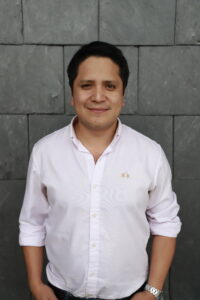Holly Ashley
Preferred Care at Home is dedicated to providing reliable, compassionate and affordable care. Our services improve quality of life while safeguarding independence and dignity in the home or wherever our clients call home.
Year Founded: 2009
Year of INCubator graduation: 2013
Place Founded: Chattanooga
Founder: John Kerns, Owner & President
Services include:
Hospital-to-Home Care, Transition Care
Companion Care
Homemaker Care
Personal Care
Dementia/Alzheimer’s Care
Live-in Care
End-of-Life Care
Hospice Support Care
The Wellness Center at Thrive at Brow Wood
Q: Tell us about your business, Preferred Care at Home.
A: We are part of the national Preferred Care at Home franchise. Our Greater Chattanooga footprint includes all of Hamilton County, much of Bradley County, some of Rhea County in Tennessee and parts of North Georgia.
We provide care professionals to provide services to seniors in their home or wherever they call home. Our services are designed to enable independence and provide safety in the home and are mostly geared toward assisting with the Activities of Daily Living (ADLs). These include the daily chores and activities one needs in order to be healthy and safe. Some folks need more personal care like assistance with personal hygiene, bathing, dressing and medicine reminders. One of the biggest benefits to our clients is transportation services. There are quite a number of seniors in Hamilton County with many years of thriving and independence yet available to them, but they don’t drive, so our transportation services help them fully enjoy those years.
The Early Years
Q: How did you get started as an entrepreneur?
A: I was at a time in my life where I knew I wanted to embark on a career in entrepreneurism because I wanted to be responsible for my own failures and successes. I had had some experiences where my family had to organize to provide care for loved ones. Because of that, I became aware of other families facing the same challenges of providing elder care. Just knowing the demographic challenges our country faces, I knew there would be business opportunities there so I started doing research and consulting with a close family friend who was a physician. Next, I began researching the options of either engaging with franchise systems or starting a business independently. I ultimately chose franchising, and then I chose Chattanooga.
I launched the franchise in 2009 when I was still living in Knoxville, Tenn. I had bought the territory rights to serve Chattanooga and started commuting here from Knoxville, working part-time to get the office off the ground. It was a marketing effort initially, just knocking on doors and telling people what I was moving here to do. By May of 2010 we had enough clientele to justify me leaving Knoxville and coming to Chattanooga to work full-time on the venture. I’ve been putting one foot in front of the other ever since.
Q: You were a client at the INCubator in the Hamilton County Business Development Center. How valuable was that to you as a startup?
A: I moved my business into the INCubator in June of 2010 in what I am certain was the building’s smallest office. I had a desk, a couple of chairs, a small workspace with a table and used a filing cabinet that I pulled out of my mother’s garage; I’m pretty sure it had car parts in it at one time.
Here’s the reality: the biggest factor to my success was the below-market rent. We can talk about all the other support services at the INCubator, like the Tennessee Small Business Development Center – which is truly great, but the below-market rent for a startup business is going to be what an entrepreneur will appreciate the most because of the importance of managing cash flow. I would have had to work out of my home, less productively, for a year or two had I not had the INCubator as a resource.
After three years, when I graduated the program, my company was ready to lease an office at full market rates. The INCubator program did what it was supposed to do. The staff there – Kathryn, Tabitha and Bill – are absolutely succeeding. In a community that prides itself on its entrepreneurial spirit, the BDC is an important part of that bedrock foundation of that spirit.
Q: How has Chattanooga contributed to your success?
A: When I moved to Chattanooga, I was vaguely aware there was this…entrepreneurial thing here. It only took a few days to realize the hype was very real. I would introduce myself and my startup to others and it was actually an asset that I was an entrepreneur because people here embraced the idea; they were so happy to be talking to a fellow business owner. And those considering doing business with us loved that we were a startup, so they didn’t care about our lack of referrals because the startup culture here is so strong.
Aside from that, the senior care community here is very active and cooperative. I know the names of four or five of the owners of other businesses in this space and I can call on them anytime. To be sure, we do compete, but we also collaborate in the interest of delivering quality care to our community. I would agree the collaboration of both the startup and senior care communities is indicative of the “Chattanooga Way”.
Doing the Work
Q: Discuss your initial return on investment and subsequent growth.
A: My initial investment to start the franchise was fairly modest and the returns have been phenomenal. We have been able to grow based on two factors: first, the fact that there is a strong need for what we do in Hamilton County, and secondly, I think we have managed our growth well. We’ve scaled conservatively and reinvested in the business time and time again. We have insisted on being able to support the growth that we’ve achieved. One of the biggest problems operationally for some startups is they can run the risk of outgrowing what they can support with their existing staff. We have controlled that. On a fairly modest initial investment, and really the major investment was myself diving in and running the business on an extremely modest income for a couple of years, it’s worked out. We now have six administrative staff and a team of 75 care professionals and our current staffing levels are capable of managing even more steady growth. We’ve done well.
Q: I’ve read that starting a franchise, as opposed to a traditional startup from nothing, is a sort of shortcut to business ownership. On the other hand, there seems to be a stigma around franchises, as though they aren’t “real” startups. What do you think?
A: I do think there is a stigma around franchises, but we’re able to alleviate those concerns in a manner of moments and, ultimately, it doesn’t stick. New clientele ask us all the time if we’re part of a franchise system and I think it’s because people are generally suspicious of that business arrangement. The truth is, all franchisees are running a locally owned business just like any other business owner or founder. I don’t care if you’re Preferred Care at Home or McDonald's. These businesses are operated by families that live in the market they serve. That’s the bottom line.
That said, I wouldn’t make a blanket recommendation on choosing a franchise over a traditional “startup”, simply because every situation is different. Some brands are so powerful that if you’re going to enter a particular industry, then having that franchise brand is valuable. But that’s not always the case. Sometimes potential entrepreneurs have enough base knowledge of their industry that they don’t need a franchise system. It just depends on the industry, the nature of the business and how much knowledge you bring to the project on the front end.
Q: What has surprised you the most during this venture?
A: The most surprising thing about this business has been the expansive level of care we are asked by families to provide within care facilities. From services on hospital floors to care in both assisted and independent living facilities, we provide a great deal of extra support in these settings. And this is above and beyond what families are already paying the facilities for. Many families place a lot of value on that extra peace of mind.
Q: What has been the most challenging aspect of the venture?
A: One of the biggest challenges is that younger workers in our community do not have the skills or a basic level of professional standards when they graduate high school. You don’t need to have college experience to be a caregiver. You can be a very successful member of our team with a high school equivalency and some care experience. But very often what happens is our care providers are typically older because they’re the ones that generally excel. This goes back to what Hamilton County has been talking about over the last year regarding the challenges in our education system. It’s one of my biggest challenges as a business owner, and it’s certainly not industry specific.
Looking Forward
Q: What business trends are you noticing in the senior care market?
A: There’s a big trend right now towards professional referral services, a sort of “uberization” of senior care. I’m pretty emphatic when I say that’s a big mistake. I don’t believe in using online resources to ‘click and tap’ and have a care professional arrive instantly at your home. That’s an enormous mistake because at the end of the day, this business is about providing the most basic elements of human care, and that requires real management. I reject the idea that people can log onto websites, pay someone a referral fee, and end up with a long-term, satisfying care experience. Professional referral sources are not there for the long run and cannot ensure that ongoing care is satisfactory. That quality of care takes management and that management component is our competitive advantage.
There’s also the issue of care education. I see a number of private educators come into the community and set up shop for a few semesters, only to fizzle out and disappear. I am curious about exploring ways my company can enter the care education field and provide job training for people who are serious about becoming care professionals. I think we could be successful in establishing something a little more permanent, something that would feed into our own recruiting efforts, but would also help address this labor crunch our community is facing. The care education trend is one I’m watching closely.
Q: How would you define success for your company five years from now?
A: It’s always desirable to continue to see year-over-year growth and I believe we will continue on our current trajectory as families are increasingly aware of our services. With that said, success for me will ultimately be defined by our ability to capture those opportunities that are tangential to our core business. One such opportunity already starting to emerge is facilities staffing. The labor market is incredibly competitive right now and there are more jobs in Hamilton County than Hamilton County can fill. This talent shortage is especially evident in the medical community when it comes to nurses, nurse’s assistants and care professionals. Consequently, we have developed into professional recruiters and our processes have become quite good. We’re able to identify, recruit and deploy care professionals in a variety of settings where they can be most effective. As a result, there are several facility directors who call me when they need care staff. This is a high-growth area. I think long term success will be ours if we can continue identifying ways to meet new demands in our field.
Q: Any advice for other startups? Any recommended reading/podcasts?
A: When someone tells you starting a business is hard work, they’re underselling it. It’s 10 times harder. Never let that deter you though. Although founding a company is a lot of work, it’s absolutely been one of the most rewarding experiences of my life.







